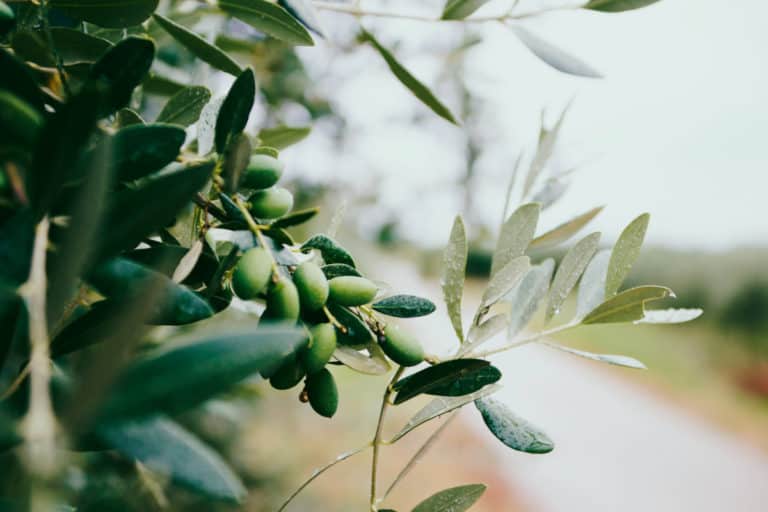As the pursuit of sustainable living continues to gain momentum, the demand for plant-based alternatives has skyrocketed. Veganism, once a niche lifestyle, has now become a mainstream choice for many who prioritize compassionate consumption and environmental well-being. Within this growing landscape, vegan skincare has emerged as a burgeoning industry, offering an array of cruelty-free and sustainable products.

Image: makingofahome.com
Among the plethora of vegan skincare options available today, one that stands out is vegan soap. Unlike traditional soap, which often contains animal-derived ingredients such as lard or tallow, vegan soap is carefully crafted using plant-based oils, butters, and other natural ingredients. Not only is it free from any animal exploitation, but it also offers a host of benefits for your skin and the planet.
The Allure of Vegan Soap
The allure of vegan soap lies in its ethical and sustainable nature. By opting for vegan soap, you make a conscious choice to align your skincare routine with your values of compassion and environmental stewardship. Additionally, vegan soap is gentle on your skin, providing a luxurious and pampering experience without the use of harsh chemicals or animal byproducts.
The ingredients commonly used in vegan soap, such as coconut oil, shea butter, and olive oil, are known for their nourishing and moisturizing properties. These natural oils deeply penetrate the skin, leaving it soft, supple, and radiant. Moreover, vegan soap is free from synthetic fragrances and dyes, making it an excellent option for individuals with sensitive skin.
Embarking on the Journey of Vegan Soap Making
If you’re intrigued by the prospect of crafting your own vegan soap, know that it’s a rewarding and accessible project that can be enjoyed by individuals of all skill levels. The process involves combining various plant-based oils and other ingredients to create a customized soap that perfectly suits your skincare needs and preferences.
Before embarking on your soap-making adventure, it’s essential to gather the necessary ingredients and equipment. You’ll need a selection of plant-based oils, such as coconut oil, olive oil, and shea butter, as well as lye, distilled water, and a few essential oils for fragrance (optional). Additionally, you’ll need safety gear, including gloves, a mask, and goggles, as lye can be caustic if not handled properly.
Understanding the Intricacies of Soap Making: A Chemical Reaction
The process of soap making is rooted in a chemical reaction known as saponification. When lye (sodium hydroxide or potassium hydroxide) is dissolved in water, it forms a strong alkaline solution. This solution is then combined with the plant-based oils, initiating a reaction that transforms the oils into soap and glycerin. The glycerin is a valuable byproduct that contributes to soap’s moisturizing properties.
The saponification process requires precise measurements and caution. It’s crucial to follow the recipe accurately and wear appropriate safety gear to avoid any accidents. Once the saponification process is complete, the soap mixture is poured into molds and set aside to harden. The curing process can take anywhere from four to six weeks, allowing the soap to fully develop its properties.

Image: rusticwise.com
Tips and Expert Advice for Successful Vegan Soap Making
With a little practice, you’ll master the art of vegan soap making and enjoy the satisfaction of creating your own natural and ethical skincare products. Here are a few tips and pieces of expert advice to guide you on your journey:
- Choose high-quality ingredients: The quality of your soap depends on the ingredients you use. Opt for organic, cold-pressed plant-based oils to ensure purity and freshness.
- Follow the recipe precisely: Soap making is a precise process, and it’s crucial to adhere to the recipe to obtain the desired results. Incorrect measurements or substitutions can compromise the outcome.
- Use a soap calculator: A soap calculator can help you determine the precise amount of lye and oils needed for your recipe. This ensures that the soap is properly balanced and has the desired properties.
- Wear appropriate safety gear: Lye can be caustic, so it’s essential to wear gloves, a mask, and goggles when handling it. Always work in a well-ventilated area.
- Be patient: Soap making is a process that takes time. Allow the soap to cure for the recommended period to develop its full properties and ensure its effectiveness.
Frequently Asked Questions about Vegan Soap
- Q: Is vegan soap as effective as traditional soap?
A: Yes, vegan soap is equally effective as traditional soap in terms of cleansing and removing dirt and impurities from the skin. In fact, vegan soap may be even gentler on the skin due to the absence of harsh chemicals or animal byproducts.
- Q: Is vegan soap suitable for all skin types?
A: Vegan soap is generally suitable for all skin types, including sensitive, dry, and acne-prone skin. However, it’s always recommended to patch test a new soap on a small area of your skin before applying it to your entire body.
- Q: Can I add essential oils to vegan soap?
A: Yes, you can add essential oils to vegan soap to enhance its aroma and offer additional therapeutic benefits. However, it’s important to use essential oils sparingly and avoid adding them directly to the lye solution. Instead, add them to the soap mixture once the saponification process is complete.
How To Make Vegan Soap
Conclusion
The world of vegan soap offers a myriad of benefits for your skin and the planet. By choosing vegan soap, you not only make a conscious choice to align your skincare routine with your values of compassion and sustainability but also reap the rewards of gentle, nourishing, and ethical skincare. Embark on the journey of vegan soap making, discover the joy of crafting your own natural skincare products, and embrace the beauty of compassionate living.
Would you like to learn more about the fascinating world of vegan soap and explore additional tips and recipes? Share your thoughts and questions in the comments below, and let’s continue the conversation.






